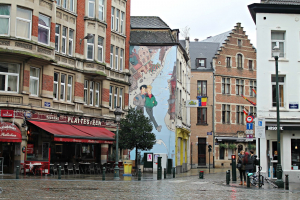Top 10 Greek Culture, Customs, and Etiquette
Greece is a highly integrated member of the European Union, thus its customs and social mores are likely familiar to you. However, if you look a bit closer or ... read more...go to farther-flung, less visited locations, you'll discover that old Greek customs still exist to a satisfying extent. It's simple to unintentionally offend someone, but it's equally simple to avoid doing so by adhering to a few straightforward guidelines and elevating your status from that of a tourist to that of an xénos, a word that denotes both stranger and guest. Here is the list of Greek Culture, Customs, and Etiquette.
-
The majority of Greeks will dress up to go out, and not doing so is at the very least regarded slovenly. While dress codes are completely loose on the beach, they're far less so off the coast. Even toplessness is frequently frowned upon on family beaches, especially those close to town or near a church (of which there are many along the Greek coast).
There are quite a few nudist beaches in secluded locations, and many locals like them. Most monasteries and, to a lesser extent, churches have rather severe clothing codes for visitors: no shorts, women are supposed to cover their arms and wear skirts (although the majority of Greek women who visit will be wearing trousers); the required coverings are occasionally given on the spot.
Don't hold out your hand to someone with the palm facing out, and don't make an OK sign by circling your thumb and forefinger with your fingers together since these gestures are exceedingly offensive. Greeks employ a little forward tilt of the head for yes and a more strong backward nod for no, therefore nodding and shaking your head are likewise unlikely to be understood.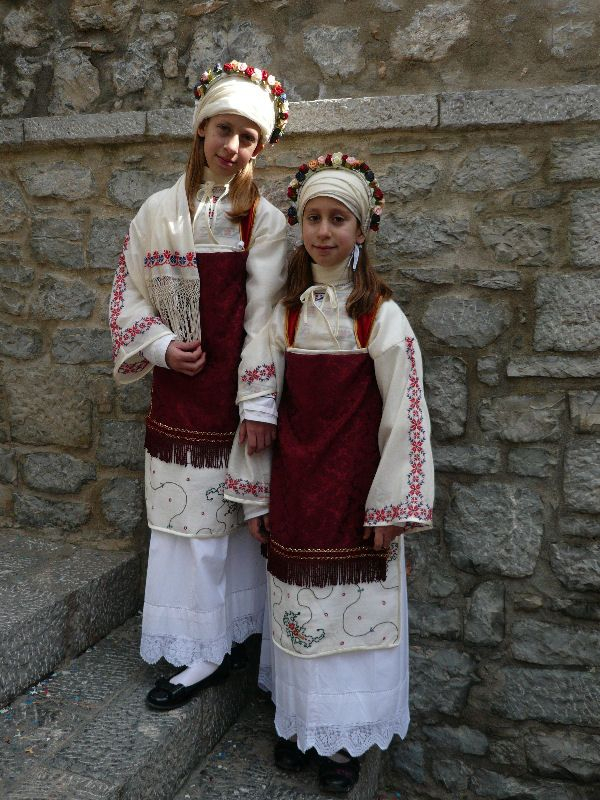
https://www.pinterest.com 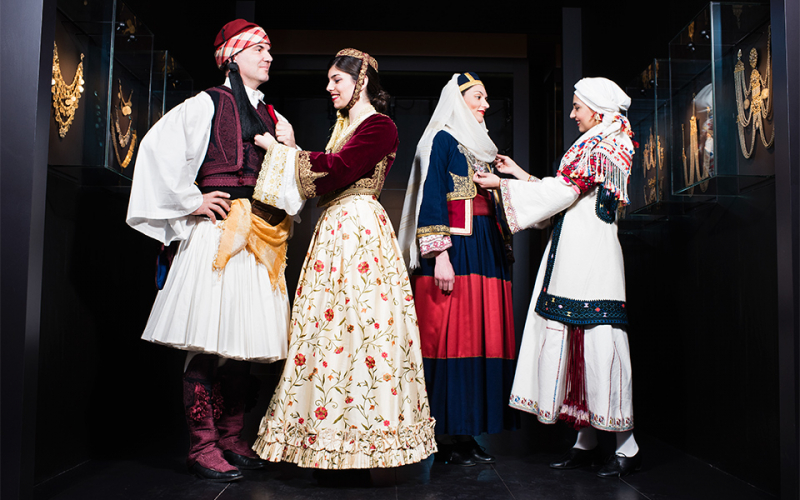
https://www.greece-is.com -
Since most stores have set prices, bargaining is not a common part of life for tourists. It is worthwhile to bargain for a lower price while renting a car or a room, especially during off-peak times. However, it's better to avoid being pushy; for instance, ask if they have a cheaper accommodation rather than insisting on a lower rate.
Although most taxi drivers expect tips from visitors, and the majority of service personnel are paid extremely poorly, tipping is not required anywhere. The service charge is already included in restaurant bills; if you want to tip, rounding it up usually suffices.
Smoking should also be included. Greeks are the biggest smokers in Europe, and despite the fact that it is against the law to smoke inside of bars, restaurants, or other public places, this rule is largely ignored in daily life. Effective smoke-free spaces are quite uncommon.
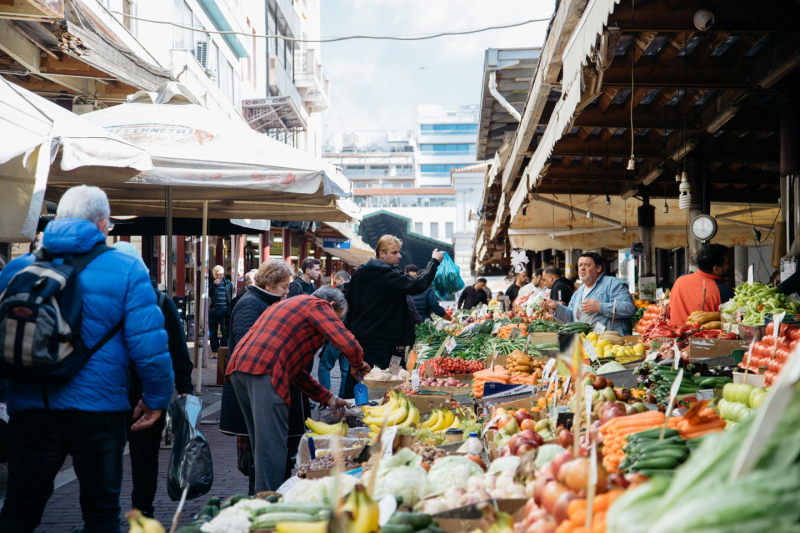
https://theculturetrip.com 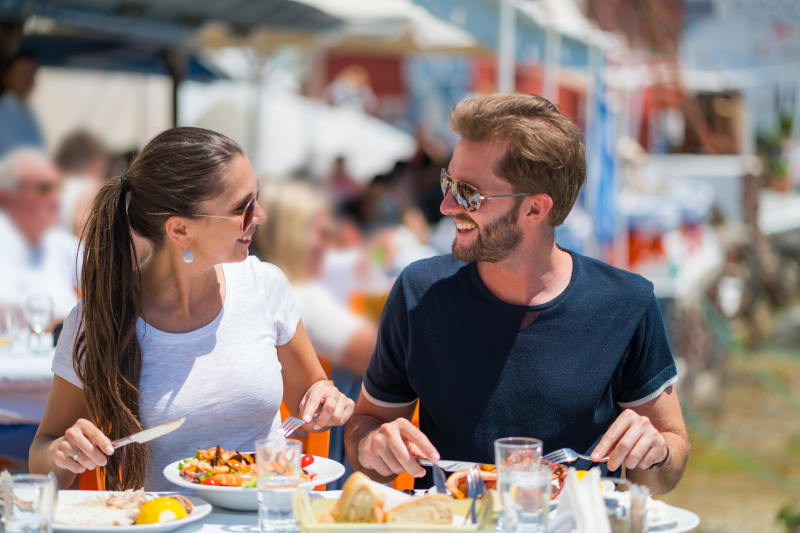
https://www.greekboston.com/ -
In Greece, thousands of women travel on their own without encountering harassment or intimidation. Nearly all of the traditional Mediterranean masculine motivation for dating foreign ladies has vanished as relationships between unmarried Greek men and women have become more westernized. At some well-known resorts, such as Kávos in Corfu, Laganás in Zákynthos, and Faliráki in Rhodes, northern European men are more likely to sexually assault foreign women than bad-intentioned locals. It is prudent to avoid going out on a solo bar crawl or accepting late-night rides from strangers (hitching at any time is not advisable for lone female travellers). You're more likely to be treated as an xéni if you're traveling with a man.
In particular, in the area of Sndagma in Athens, lone males should be cautious when being asked into bars because these establishments are frequently staffed with hostesses—some of whom may also be prostitutes—who will try to convince you to buy them drinks. You'll be handed an enormous bill at the end of the night, some of which goes toward the hostess's commission; those who refuse to pay are threatened physically.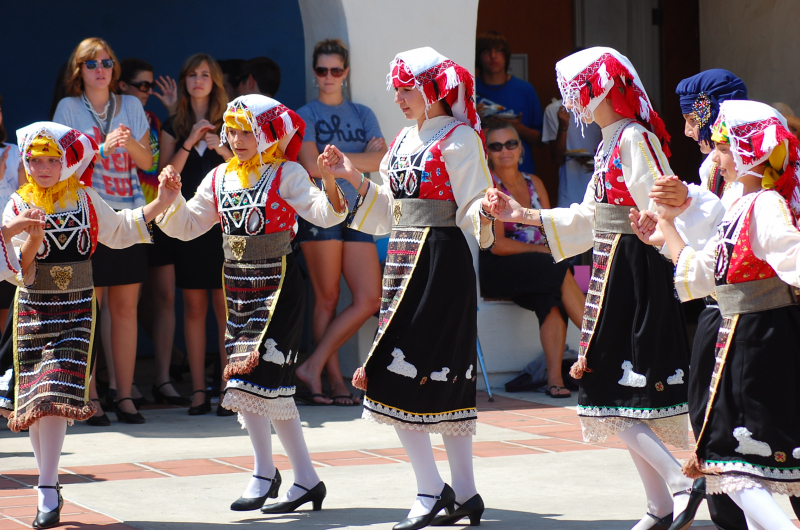
https://sandiegocountynews.com 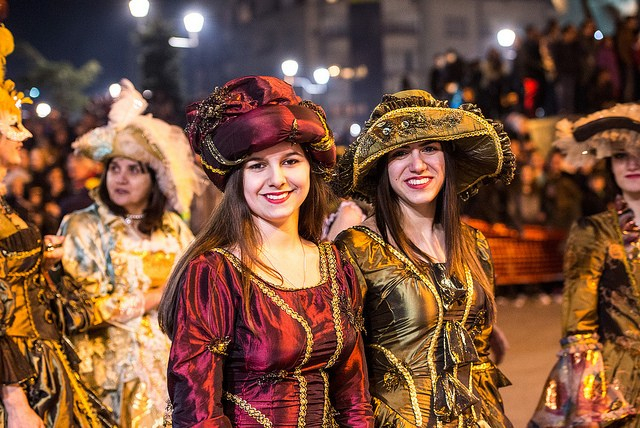
http://worldculturepeople.blogspot.com -
Greeks take great pride in their history and culture, and they judge politeness based on actions rather than words. Additionally, there is a casual atmosphere; everyone is regarded as a cousin. They frequently make gestures with their hands. Enjoy doing this. Speaking politely too much can occasionally come out as pretentious to the person you are speaking with. It's nice to learn common phrases like "please" or "thank you" (pah-rah-Kah-LOH).
Greeks typically believe that it is polite to let the stranger initiate contact. If you take the initiative by saying hello first, you're likely to find that people suddenly become friendlier. You might feel neglected when entering a café or passing a gathering of people on the street.
Women's shoulders must be covered and both sexes' knees must be covered according to church dress codes. Due to the sheer volume, this is usually only lightly enforced during the busiest part of the summer travel season! In any event, churches and monasteries, especially those with high tourist traffic, typically have appropriate clothes available at the door. Simply grab it as you enter and drop it off as you leave.
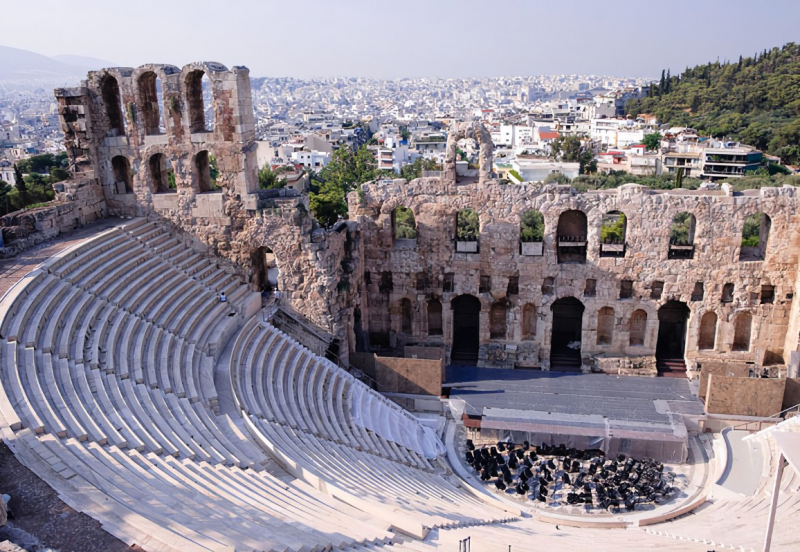
http://www.destination360.com/ 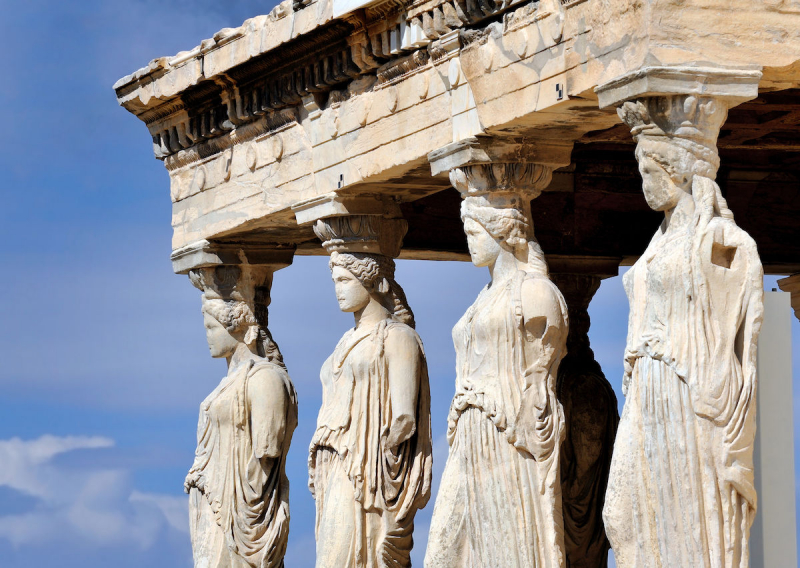
https://matadornetwork.com/ -
Do not claim that Greece is a part of Eastern Europe; in a region of communist neighbors, both pro-Soviet and neutral, Greece was the only one that openly supported the West. Geographically speaking, it is incorrect as well. Greeks resent being referred to as a Balkan nation because of the unfavorable perception of the region, despite the fact that Greece is located inside the Balkans and is the southernmost point of the Balkan peninsula.
Greece is nearly often regarded and defined by Greeks and foreigners alike as a Southern European country because it is a part of Southern Europe.The Macedonian issue is seen as a very sensitive subject by Greeks, who believe that Tito's supporters in southern Yugoslavia have appropriated their name and are using it to refer to the nation Tito established as a new constituent republic within Yugoslavia during World War II.
When speaking with foreigners, Greeks refer to it as "FYRoM" or the "Former Yugoslav Republic of Macedonia," yet among themselves, they call it Skopia (the Greek name for the Macedonian capital, Skopje). Whenever you are in the country, be aware of the fact that even the friendliest of people can become irrational by the simple mention of "Macedonia(n)" rather than "FYRoM".
http://www.fanpop.com/ 
http://goplacesholidays.com/ -
Greeks frequently use their hands and speak aloud and swiftly. People occasionally become confused by this, especially those who are from cultures where being loud is neither encouraged nor expected.
It frequently appears that people are arguing. They might, however, be discussing where they should have a coffee or what they had for lunch.
Greek dancing is a way for people to show loudness. Even among young people, traditional dances are still incredibly popular. You are sure to observe people dancing wildly during the renowned Greek festivities, panigiria. Greeks also employ a lot of profanity. For instance, the word "Malaka" has achieved global fame!
Speaking isn't the only activity that involves loudness; driving in Greece is only one example. It's customary for cars to honk at the car in front just before the light turns green.
https://www.tenofficial.com/ 
https://www.etsy.com/ -
Greeks enjoy breaking the law whenever they can. This is something that occurs frequently in Greece, love it or hate it. Most Greeks have breached the law at least once in their life. They might have parked unlawfully, constructed an unauthorized home addition, smoked inside a restaurant, ignored a stop sign or red light, crossed the street while there was a red light, failed to pay their taxes, or done something else.
For instance, parking on the sidewalks is common in Athens. In actuality, finding a sidewalk that you can walk on is more unusual! Thankfully, this doesn't apply to the old town. Curfews for bars essentially don't exist because of this, and it took Greece a while to take the anti-smoking law seriously.
Some people despise this quality, but others find it liberating. Numerous foreigners I've encountered have said that they relocated to Greece because life is "more laid back" there.
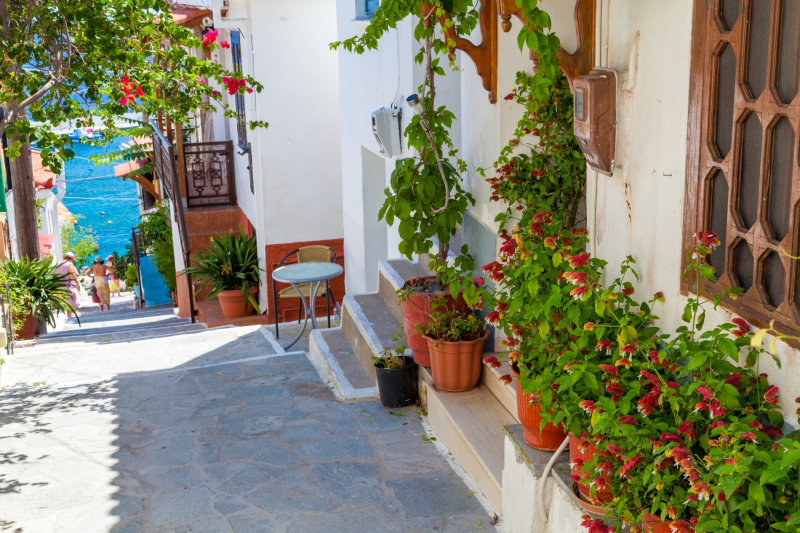
https://www.publicdomainpictures.net 
https://welcometoleeds.co.uk -
It means that something cannot happen simply because this is Greece and has nothing to do with Gerard Batler's "This is Sparta." It serves as a justification for disregard for or opposition to change and progress. At the start of the economic crisis, when a salary cut was about to take effect, the phrase "Here is Greece" was also used. It implied that because Greece is here, the wages cannot be cut.
Greeks often identify words with Greek roots in a dialogue when speaking to a foreigner. What's this? A LOT of them exist. Ancient Greece is where words like philosophy, photography, economy, sarcasm, problem, technique, school, concept, music, and many others originated. And yes, we want to share this with everyone since we are so proud of it!
Are you interested in studying more Greek? Don't forget that philosophy was developed by the Ancient Greeks. These 12 Greek thinkers, including Socrates, Plato, Aristotle, and a few more, altered the course of human history.
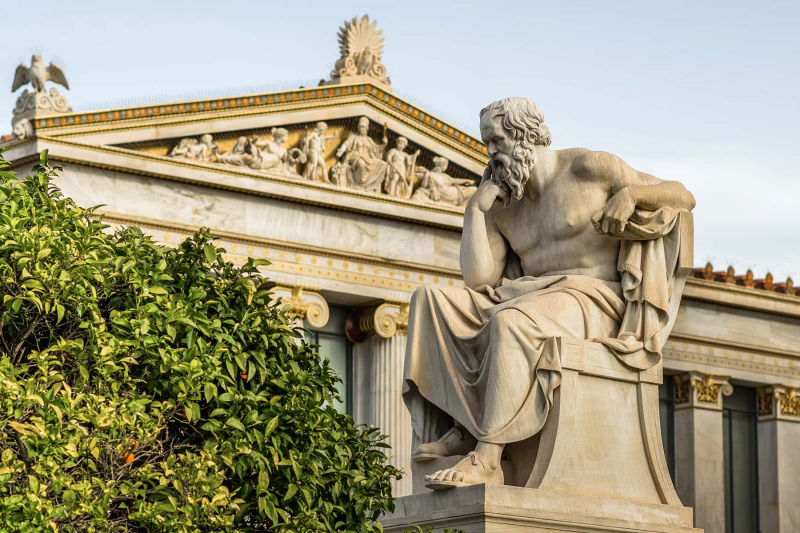
http://www.milwaukeeindependent.com 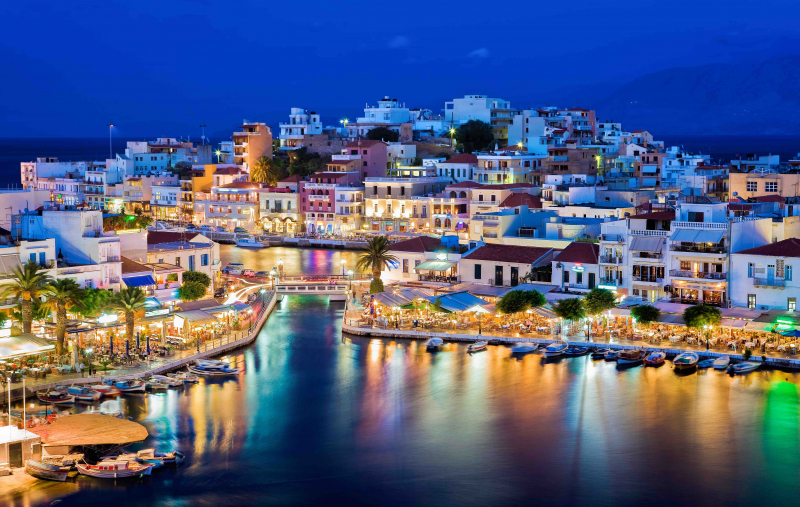
https://sothebysrealty.gr -
Greek culture, which is documented in ancient texts and paintings, includes Greek cuisine. Later, it had an impact on ancient Rome, all of Europe, and beyond.Its foundation is the trio of wheat, olive oil, and wine, just as many other Mediterranean cuisines. It includes meat such as hog, chicken, veal, beef, lamb, rabbit, and goat as well as vegetables, olive oil, grains, and fish.
Pasta (such as hilopites), cheeses, lemon juice, herbs, olives, and yogurt are additional crucial ingredients. Other grains, most notably barley, are also used, especially for paximathia. Wheat is the most common grain used to make bread. Nuts, honey, fruits, and filo pastry are typical components of desserts. While combining Balkan and Italian influences, it retains the traditions of Ancient Greek and Byzantine cuisine.
Greeks are VERY serious about their food. This blog includes a full section devoted to Greek food as a result!
Few Greeks, if any, would choose any other food over a home-cooked Greek meal. Greek food is one of the most well-liked in the world due to its simplicity and variety.
Tomatoes, onions, garlic, lemon, meat, fish, cheese, lentils, veggies, and olive oil are a few of the components that are a must-have in any Greek meal. The majority of residents consume bread with their meals, and olives are a common snack.
Whatever your tastes, Greek cuisine will leave an impression.

https://handluggageonly.co.uk/ 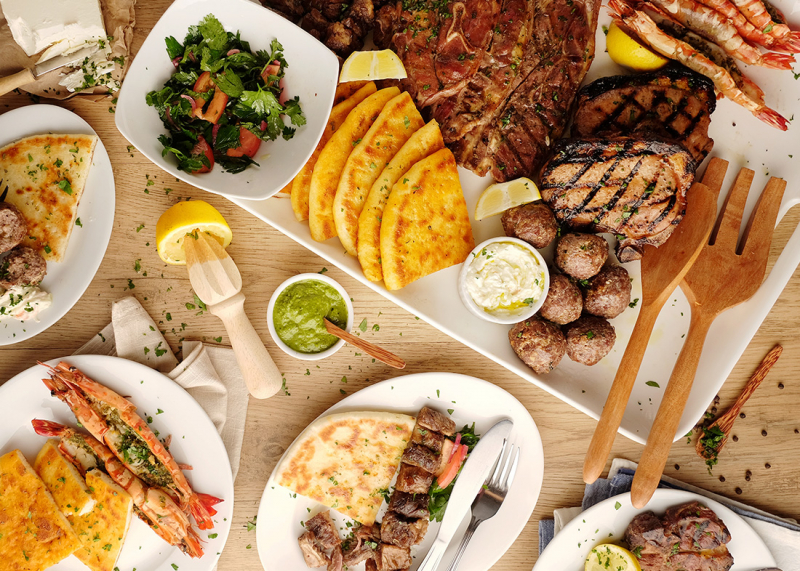
https://cymarestaurants.com/ -
Greeks observe Easter in a deeply religious manner that closely resembles the customs of their native country. Greek immigrant Philip Adikimenakis, a first-generation student at Baruch College, spoke about the numerous customs his family follows at home and at their neighborhood church.
Orthodox Christianity is the state religion of Greece, where a sizable population practices religion. However, even nonbelievers frequently adhere to our religious customs. Easter is the most significant holiday in the Greek Orthodox calendar. It's time to gather with family and observe certain religious rites. Eating has a significant role in tradition, as one might anticipate, and the Easter table is especially lavish. The entire year is filled with dozens of noteworthy events. Take a look at this article about Greek festivals, holidays, and celebrations.
Greeks observe Easter in a deeply religious manner that closely resembles the customs of their native country. Greek immigrant Philip Adikimenakis, a first-generation student at Baruch College, spoke about the numerous customs his family follows at home and at their neighborhood church.
https://www.newsweek.com 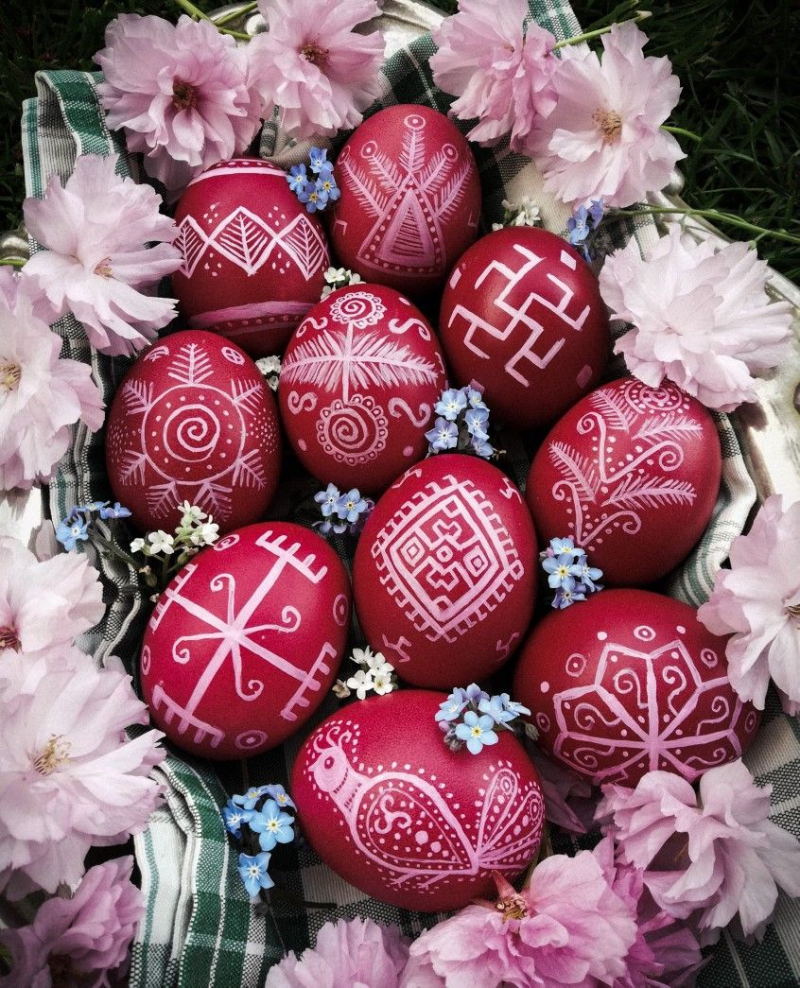
https://www.newsweek.com












